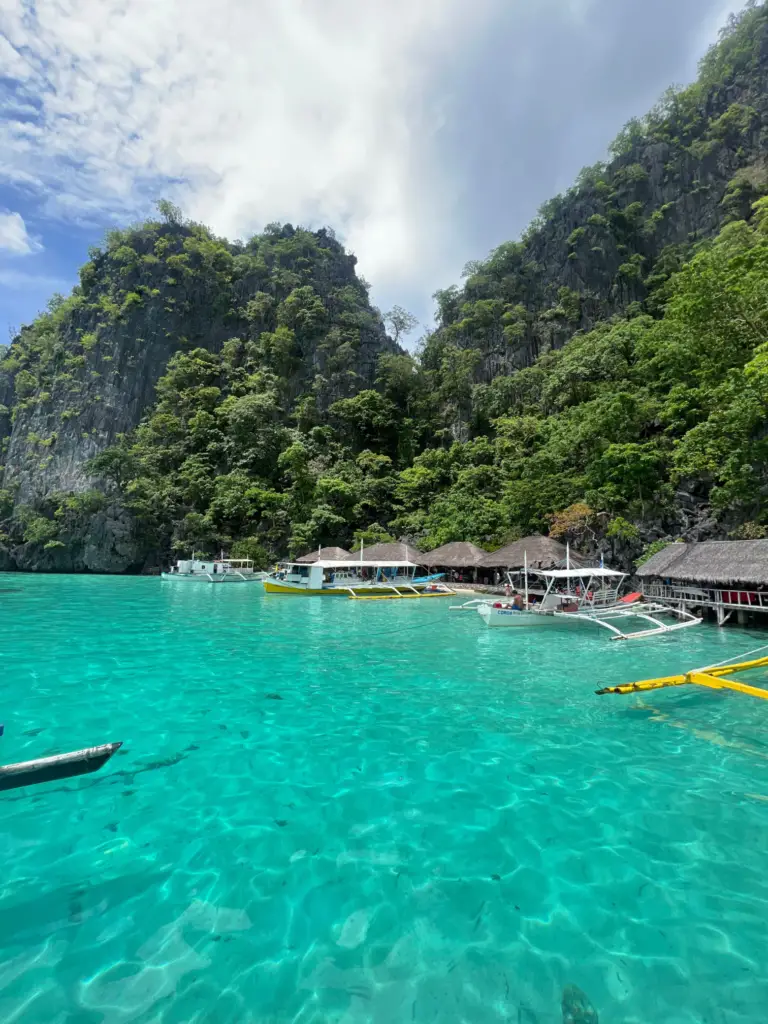
Discovering Responsible Tourism through Sustainable Farming and Cultural Heritage
Eco tours are growing in popularity as travelers and locals alike are realizing the dire need for sustainable tourism. I had the pleasure of visiting Coron, Philippines and while many people think of the amazing islands and boat tours, that are definitely worth doing, I ventured into exploring eco tours in the Philippines. Coron Natural Farms is the first farm visit eco tours adventure in the small but growing island of Busuanga, Philippines within the province of Palawan. Largely embracing permaculture, the beautiful harmony of living with the land in its natural ecosystem, Coron Natural Farms serves as an incredible example of utilizing the resources of the land, nurturing it for further development, and living sustainably for a better future. As I cover my experience at Coron Natural Farms, I’ll delve into the fascinating world of responsible tourism and self sustaining farming, where Coron Natural Farms is located and how to book a tour, and why this eco tour was so special to me.
Exploring My Ancestral Roots through a Philippines Tour

As I stepped off the plane in Busuanga, Philippines, I was met with the undeniable tropical heat. Surrounded by rolling hills and mountains, vast vegetation, and the bright sun, I had finally touched down in the land my family had left 55 years ago. Being first generation born Filipina American, it had always been my dream to visit the Philippines and learn about my roots – the vibrant people and culture, breathtaking landscapes, and of course, the delicious cuisine. When I got the opportunity to venture over to the Philippines, I knew I wanted to experience something far more than the normal (and beautiful) island hopping and beaches. My searches ultimately led me to Coron Natural Farms, nestled in Coron Municipality, the island’s first farm tourism destination that serves as a thriving sustainable farm with hopes and dreams of one day becoming a beautiful eco-village. This Philippines tour far surpassed my expectations and was the best introduction to my first time visiting the Philippines.

Eco Tours: Booking Coron Natural Farms
In search for a more cultural experience, I was immediately drawn to Coron Natural Farm’s ethos of sustainable living. Initially in my research of Coron tours, I was struggling to find a rich cultural experience, until I found Al’s Farm Tour on Airbnb. After reaching out to Al, the owner of the farm, I was able to coordinate the tour and logistics so easily, setting the stage for a warm and personal experience right from the start. Al was flexible, helpful, and informative and the farm visit’s affordability and its capacity to accommodate up to 30 people, made it an ideal destination for me and eco-conscious travelers alike.
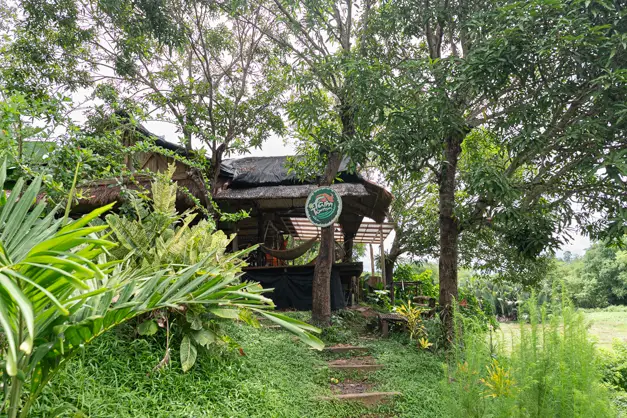
Coron Natural Farms is nestled amidst the lush landscapes of Busuanga, the second largest island in the province of Palawan, a picturesque paradise known for its turquoise waters, rich landscapes, and vibrant marine life. Located in the northern part of Palawan, this region is a growing destination in the Philippines, attracting nature lovers and adventure seekers from around the globe.
The beautiful goal of Coron Natural Farms is to give back to the people and land that so selflessly gives to us by creating a self sufficient homestead. Through employing local indigenous tribes, using practices such as heirloom seed harvesting, and educating locals and travelers of sustainable living, the farm uplifts the lives of local people and keeps age old traditions alive through its everyday practices.
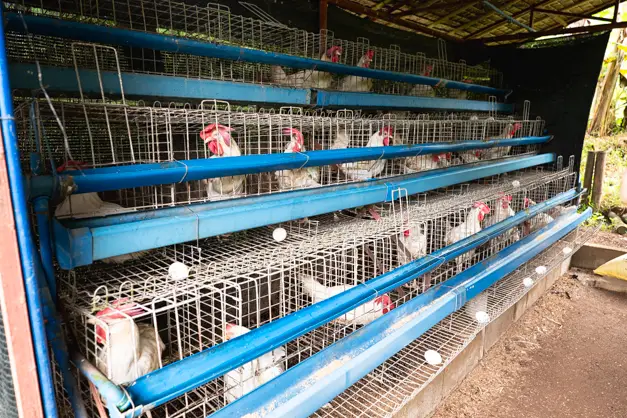

Responsible Tourism: Learning the Art of Sustainable Farming
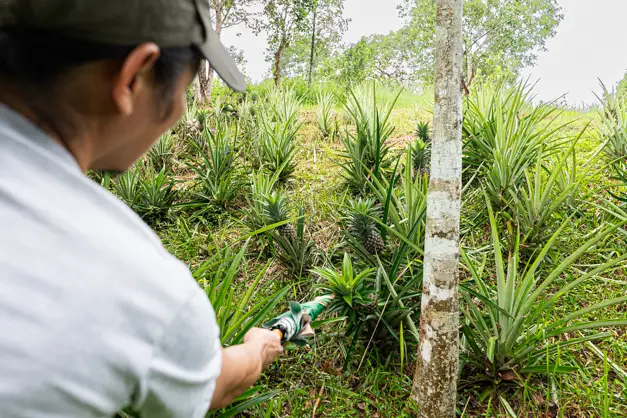
Coron Natural Farms exemplifies the essence of responsible tourism, providing visitors with a unique opportunity to witness and participate in sustainable farming practices. The farm serves as an educational platform, teaching visitors about self-sustaining farming and the principles of utilizing the resources of the land to nurture generations in the future. As we walked through the farm, Al shared with me the key practices of the farm and the historical context of the traditions that the farm practices today, which are drawn from local tribes and other successful sustainable farms throughout Asia.
Get our FREE travel itinerary planner here!!
One particular aspect that stood out to me was the 15×30 concept, which showcases the capability of using a small space and creating sustainable food production and biodiversity conservation. This initiative aims to cultivate 30 types of crops within a 15-square-meter space, highlighting the potential for self sustaining farming even in limited areas. I found this particularly fascinating because most people, myself included, would assume that you need some large plot of land or huge investment in order to create a sustainable farm, when in reality it is much easier to attain than one would think.
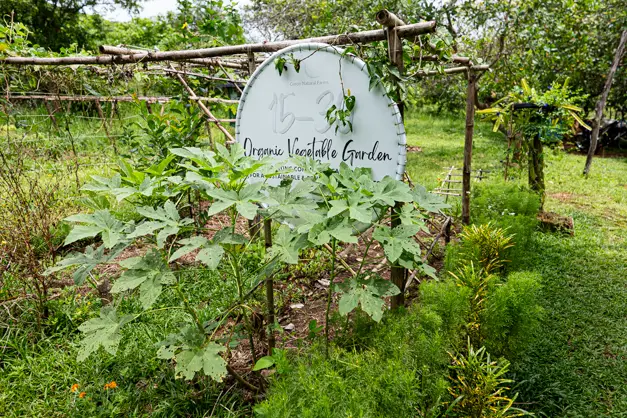
Guided by Al’s expertise and passion, I discovered the farm’s dedication to organic cultivation and permaculture principles. Organic farming methods, free from harmful chemicals and pesticides, are employed to ensure the production of healthy and nutritious crops. Composting, especially vermicomposting, plays a crucial role in enriching the soil and reducing waste, demonstrating the farm’s commitment to a closed-loop system.
Moreover, the integration of trees and crops through agroforestry practices supports biodiversity, conserves soil quality, and provides shade for delicate plants. Rainwater harvesting techniques were efficiently utilized to collect and utilize rainwater for irrigation, reducing dependence on external water sources and addressing the challenges posed by a changing climate. The farm also embraces vermicomposting, leveraging the power of worms to convert organic waste into nutrient-rich vermicompost, enhancing soil fertility and minimizing environmental impact.
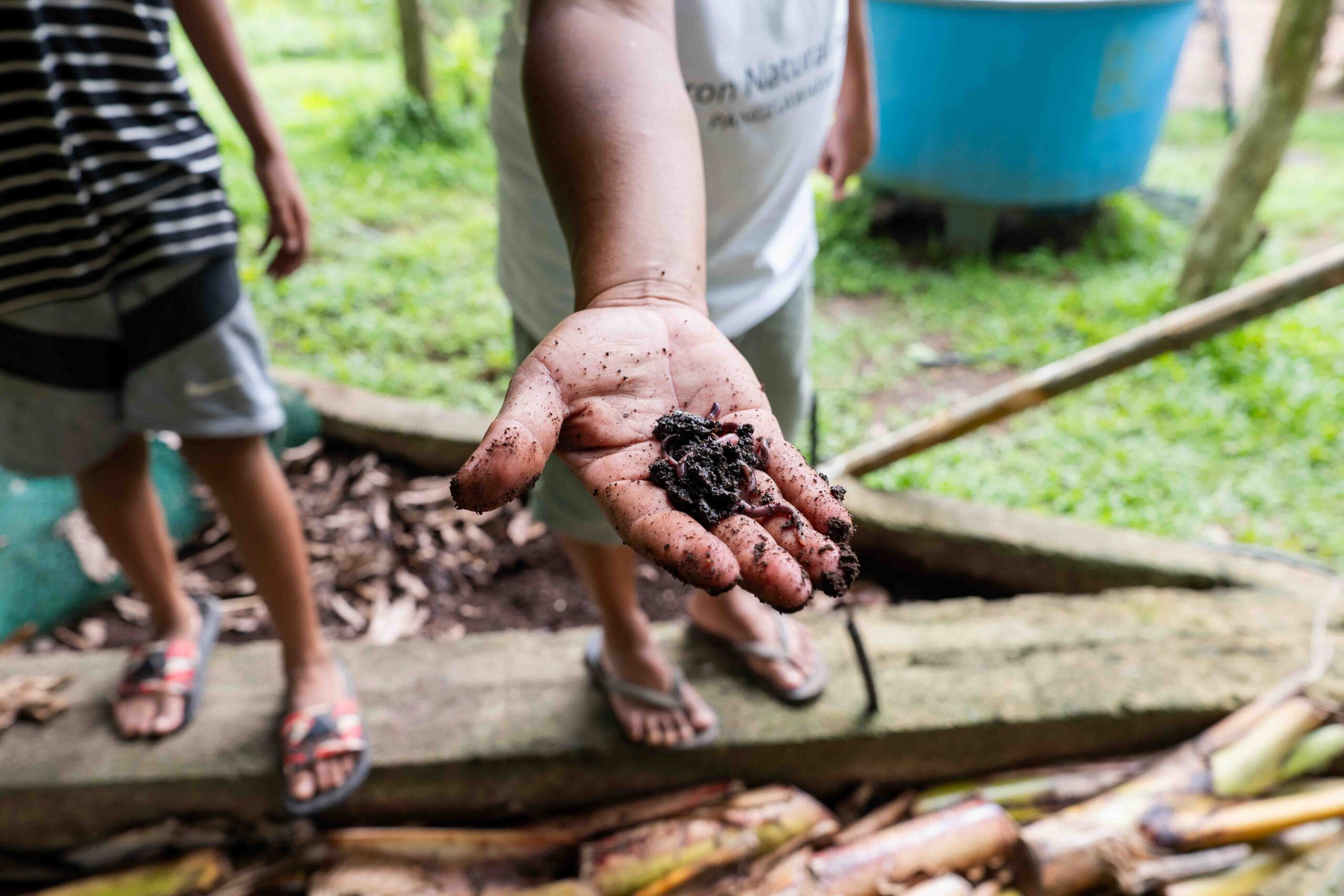
Green Tourism: Unveiling the Secrets of Self Sustaining Farming
At Coron Natural Farms, I discovered seven remarkable ways in which self sustaining farming practices are implemented to protect the environment and promote biodiversity:
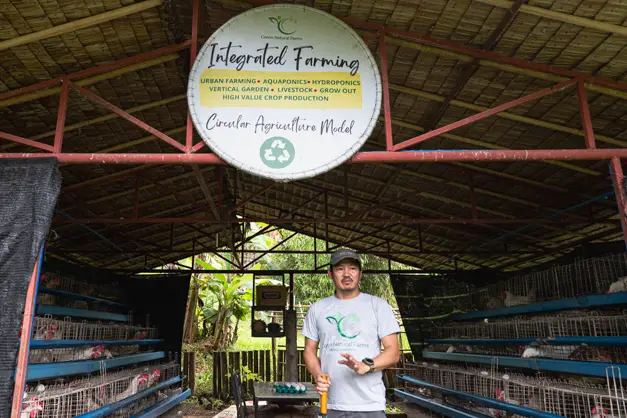
Integrated Farming: The practice involves the integration of crop cultivation, livestock rearing, aquaculture, and other complementary practices to maximize resource efficiency, minimize waste, and enhance overall farm productivity while promoting ecological balance.
Composting: Compost plays a crucial role in enriching the soil and reducing waste. Coron Natural Farms utilizes a comprehensive composting system, incorporating organic materials and farm by-products, resulting in nutrient-rich compost that enhances soil health and fertility.
Permaculture: The farm embraces permaculture principles, creating self-sustaining ecosystems and minimizing environmental impact. By designing and implementing a diverse range of plants and organisms, they create harmonious and sustainable farming systems that mimic natural ecosystems.

Rainwater Harvesting: Coron Natural Farms efficiently collects and utilizes rainwater to irrigate crops, reducing dependence on external water sources. Through the installation of rainwater catchment systems and storage tanks, they harness the power of nature to meet their water needs.
Agroforestry: The integration of trees and crops supports biodiversity, conserves soil quality, and provides shade for delicate plants. By carefully selecting and planting tree species that complement the crops, the farm creates a balanced and sustainable farming environment.
Vermicomposting: The farm utilizes the power of worms to convert organic waste into nutrient-rich vermicompost, enhancing soil fertility. Through carefully managed vermicomposting systems, they recycle organic waste and produce valuable compost that enriches the soil.
Conservation Practices: Coron Natural Farms actively promotes conservation efforts and the growing of heirloom seeds, protecting local flora and fauna while educating visitors about their importance. The farm serves as a sanctuary for various plant species and the continuation of harvesting heirloom seeds, contributing to the preservation of the region’s biodiversity.
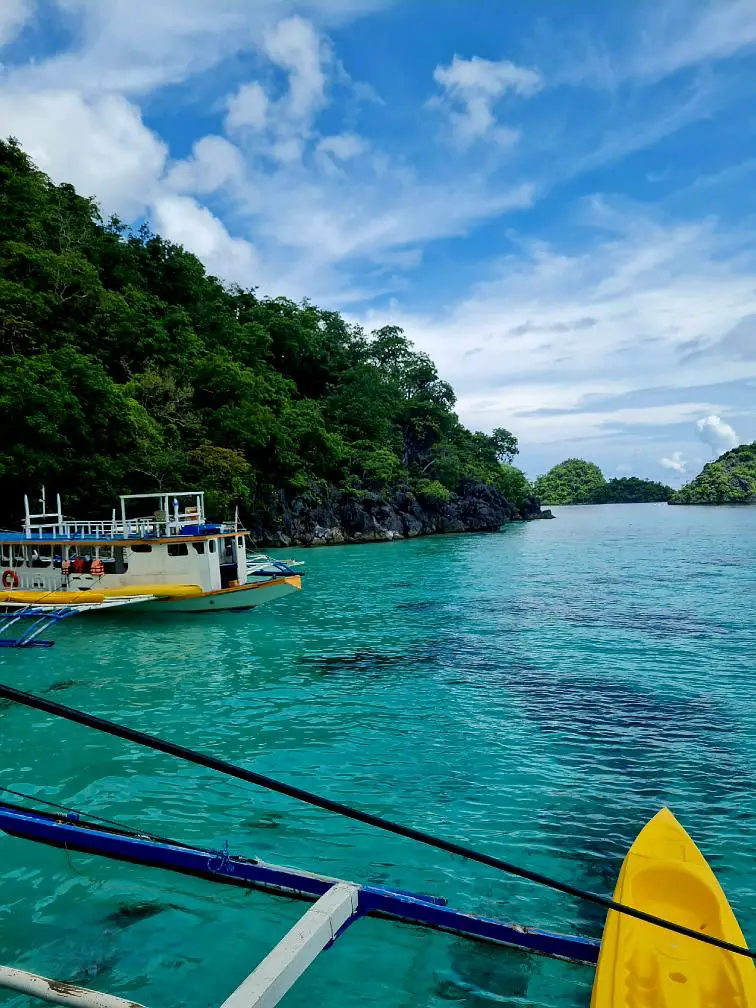
A Memorable Culinary Experience and Nature’s Lullaby
As the walking portion of the farm tour drew to a close, I had the pleasure of experiencing the authentic flavors of the Philippines with a traditional Filipino meal. Al, with his warm hospitality, introduced me to the traditional way of eating with my hands, savoring every morsel of the delicious crab and enjoying the sweetness of local mangoes that had just fallen from nearby trees. The freshness and vibrancy of the food were unparalleled, offering a true farm-to-table experience that highlighted the farm’s commitment to sustainable and locally sourced ingredients.
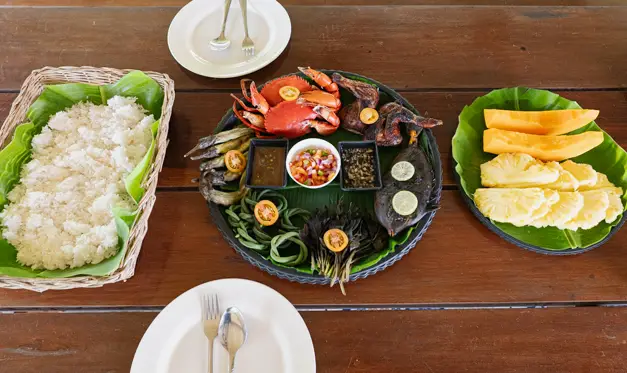
As I relished these culinary delights, Al continued to share stories of his journey to develop the farm, provided context and examples of historical Filipino traditions, and connected with me over our ethnic ties and appreciation for the giving land around us. As we chatted, the tropical skies suddenly opened up, and raindrops started to fall gently on the farm. After we ate, Al gave me time to wander the farm, swim, and relax. I found a cozy hammock overlooking the verdant rice fields, providing a tranquil spot to appreciate nature’s beauty and how it brought me to this moment. The rhythmic pattering of rain combined with the soothing sway of the hammock put me right to sleep after my long 20+ hour stretch of travel. It was a moment of pure bliss falling asleep, where I could reflect on the cultural heritage I was finally able to experience firsthand, the incredible environment created at Coron Natural Farms, and the undeniable beauty of the natural world.
Have you joined our monthly newsletter yet? Sign up here!
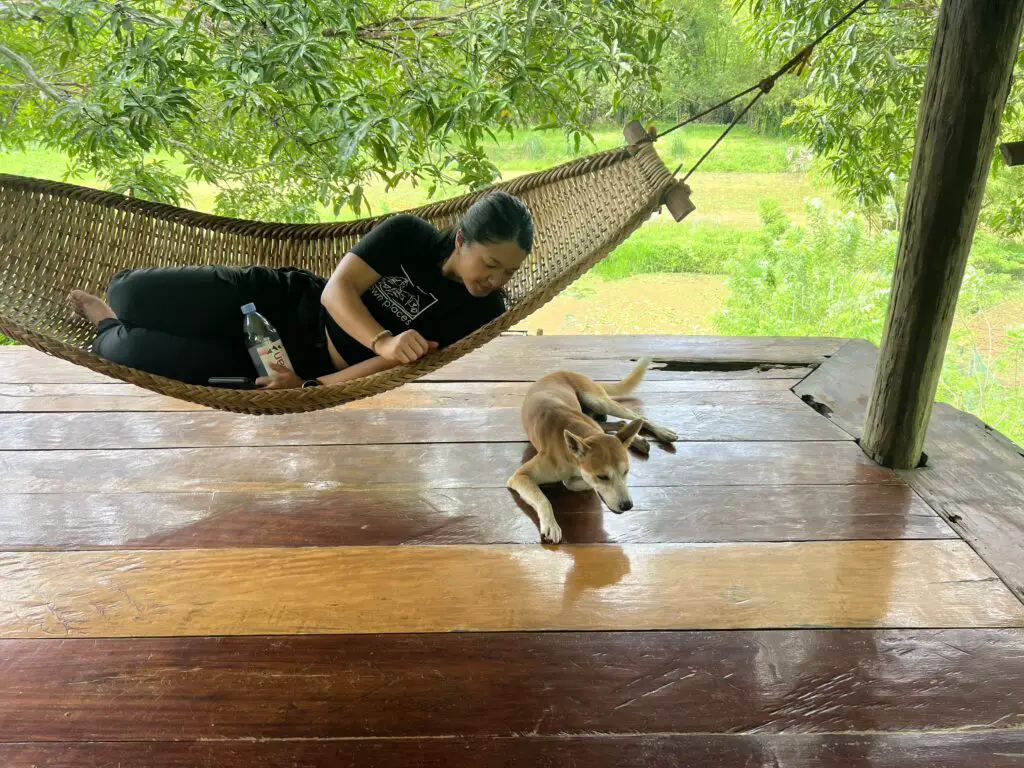
Conclusion: A Journey of Sustainable Ecotourism and Exploration
My eco tour at Coron Natural Farms in the Philippines was a remarkable journey that combined my love for travel, sustainability, and personal heritage. This experience allowed me to witness responsible tourism in action, uncover the secrets of green farming practices, and indulge in the authentic flavors of the local cuisine. Coron Natural Farms serves as an inspiring example of how travel can contribute to the preservation of our planet and the appreciation of diverse cultures. By embracing sustainable and responsible practices, we can work to ensure that future generations can also experience the wonders of this magnificent world.
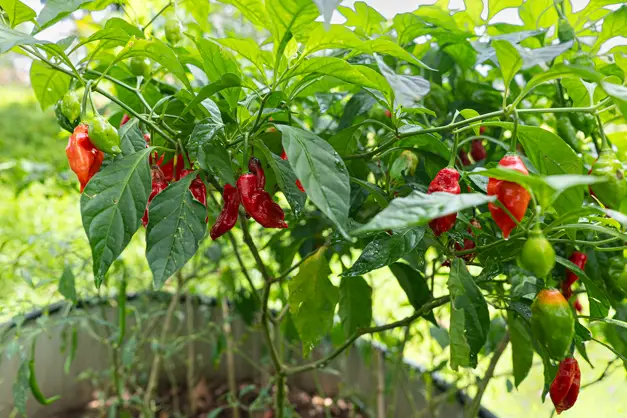
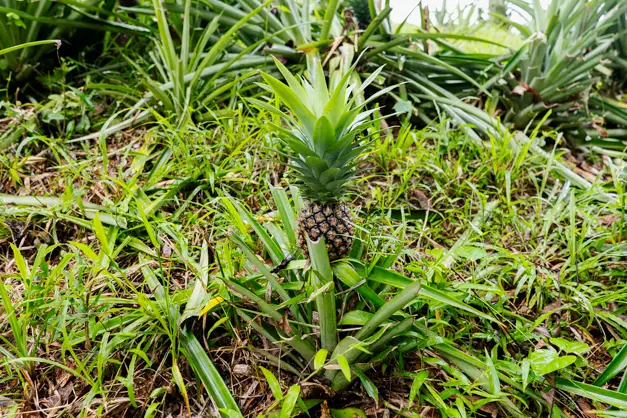
Through my exploration of Coron Natural Farms, I not only learned about sustainable farming techniques but also gained a deeper understanding of the local community and its commitment to preserving the environment. The farm’s dedication to responsible tourism and sustainable practices sets an example for others, showcasing the positive impact that sustainable living can provide to locals and travelers.
As I left Coron Natural Farms, I carried with me not only memories of the incredible landscapes and culinary delights but also a renewed sense of responsibility towards the environment and a greater appreciation for the cultural heritage that shaped my identity. This eco tour was not just a trip; it was an experience that deepened my connection with my roots and instilled in me a commitment to continue supporting sustainable practices in my future travels.
By choosing eco tours and supporting sustainable initiatives like Coron Natural Farms, we can contribute to the preservation of natural resources, empower local communities, and create a more sustainable future for all. Let us embrace responsible tourism, green practices, and a profound respect for the places we visit, ensuring that the beauty of the Philippines and other destinations remains intact for generations to come.
Don’t forget to follow our monthly newsletter to hear about our latest travel adventures and to receive a FREE travel itinerary planner!
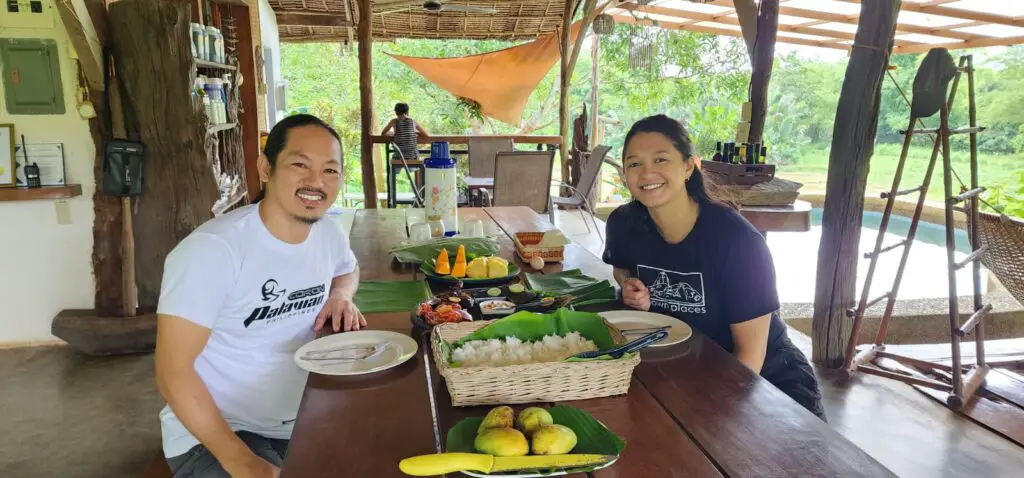
For more on sustainable travel and responsible tourism, check out my articles on “Responsible Tourism: How to Make a Positive Impact While Traveling” and “Eco Travel: The Challenge of Digital Nomadism to Communities.“


I loved reading about your time at Coron Farms and hearing all that you learned and will take with you about the Philippines. And i think it was great that you were able to take a nap after I bet a wonderful meal with Al.
Thank you for sharing, Sarah.